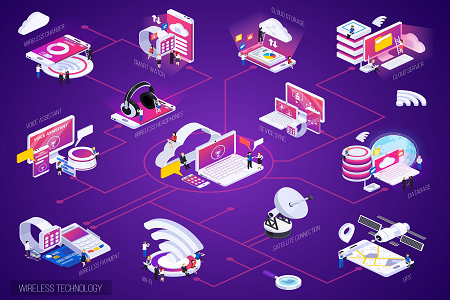Salient IT Services › Cloud Data Backup Davis
What you need to know about cloud data backup in Davis
When discussing the many benefits the cloud has brought to businesses in general and SMBs in particular, greater efficiency in the data backup process may not be the first one that comes to mind. It is, however, a significant advantage and it pays to use it to its best. With that in mind, here is a quick guide to what you need to know about cloud data backup in Davis.
You absolutely must exercise robust data governance on all your data
When you back up to a physical device, you buy a device of a certain capacity and fill it as much as you wish. Given that physical storage has been very affordable for a very long time, this has long allowed companies to dump all their data onto a physical device and not concern themselves with organizing it.
When you are working in the cloud, however, you pay for what you use and therefore it makes a great deal of sense to think carefully about what you use and why. As a minimum, you want to identify what is actual production data (i.e. what data is actually being used) and what is dormant data.

Ideally, you would then want to identify what dormant data is being deliberately stored (for example for compliance reasons) and what dormant data is just there because nobody wants to be the person who hits the delete button. You would archive the former and delete the latter.
If you’re not comfortable with that approach then putting all dormant data into an archive is still going to work out more economical than backing it up all the time, plus the less data you have the quicker you can backup and restore.
You need to have a safe process for deleting old data backups
This may sound like stating the obvious, but it’s actually a very important point. On the one hand, you want to guard against people accidentally (or maliciously) deleting your data backups, even if you still have the production copy of the data, because that would leave you very vulnerable. On the other hand, you do not want data backups just building up and building up because nobody is prepared to take responsibility for deleting them.
First of all, if you’re working in the cloud, each of these excess backups will be costing you money in storage. Secondly, the more copies of data you keep, the more exposed you are to data-security threats. This fact means that if you’re storing extra data backups of sensitive data, then you’re potentially setting yourself up for trouble with the law and/or regulators.
In short, you do need to be prepared to delete your out-of-date data backups, just make sure that process includes a sufficient degree of protection against deleting your live data backups.
It’s advisable to think about how your data backups connect with your disaster recovery solution
If you’re able to work completely in the public cloud, then it usually makes sense to undertake your data backups to another public cloud and to use it as a disaster recovery solution. Obviously, you’d need to make sure that the second cloud met all the necessary data security standards, but if you stick with a mainstream provider, that is highly likely.
If you’re working in the private cloud, by contrast, then the calculation may become a little more complicated. You could still use the public cloud to store your data backups, but you would need to encrypt them on your own servers first and keep them encrypted until they were either back on your servers again (for restoration) or had been deleted.
This would obviously mean that you couldn’t use a public cloud as a disaster recovery solution. Instead, you would have to create a second private cloud and ensure that it was also connected to the public cloud used to store your data so that you could keep everything in sync.
This would probably be the most economical option, but it would also be relatively complicated and, possibly more importantly, also relatively slow. If an event were to occur, you would need to transport your data backup to your disaster recovery cloud and then decrypt it before you could use it. This could really push back your recovery time objective.
The other option would be to set up a second private cloud and use it both to hold your data backups and as your disaster recovery solution. This would probably be more expensive, but would almost certainly offer a much shorter RTO.
If you’d like to speak to a reputable and experienced cloud data backup provider in Davis, please click here now to contact Salient IT.



